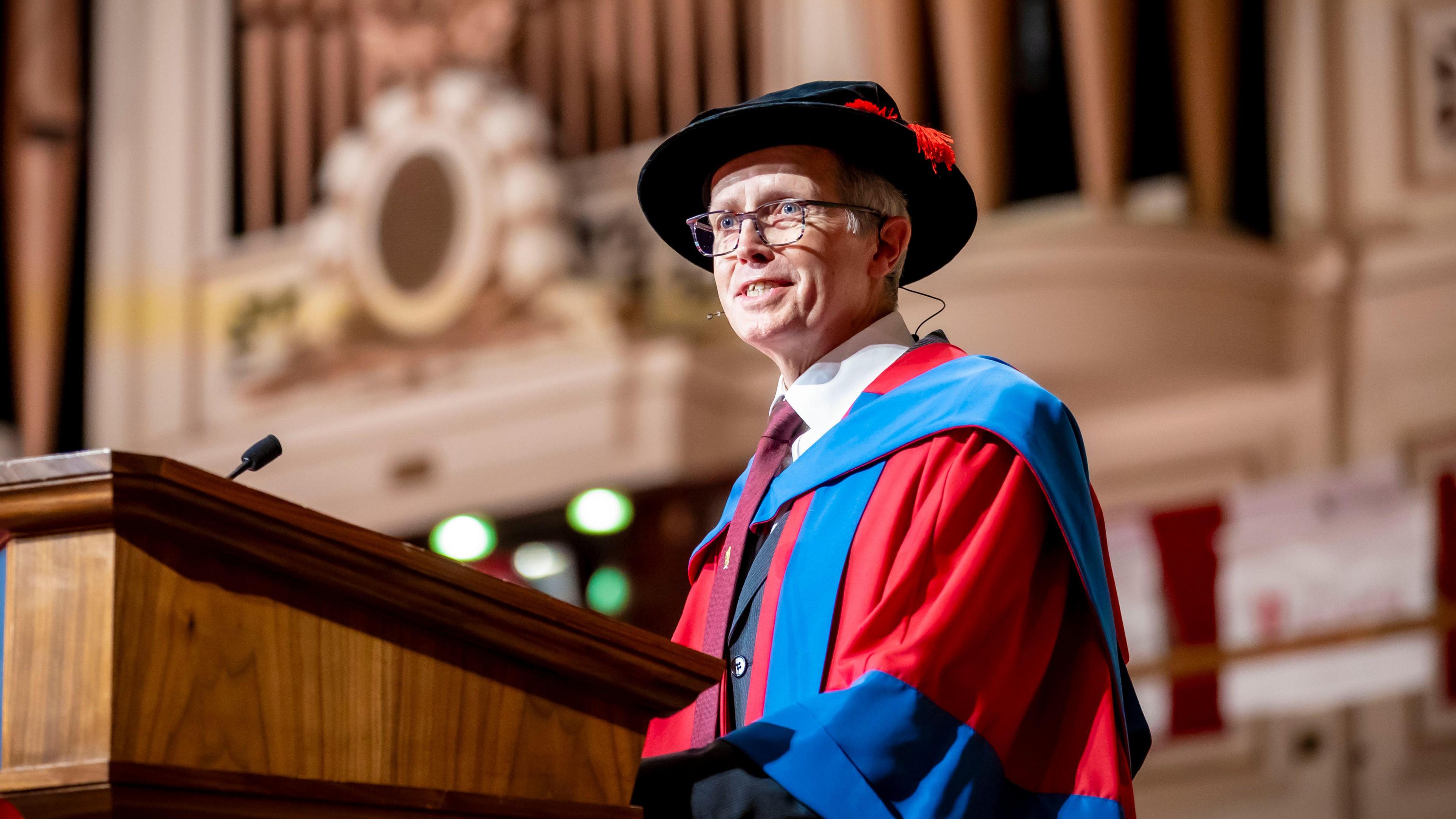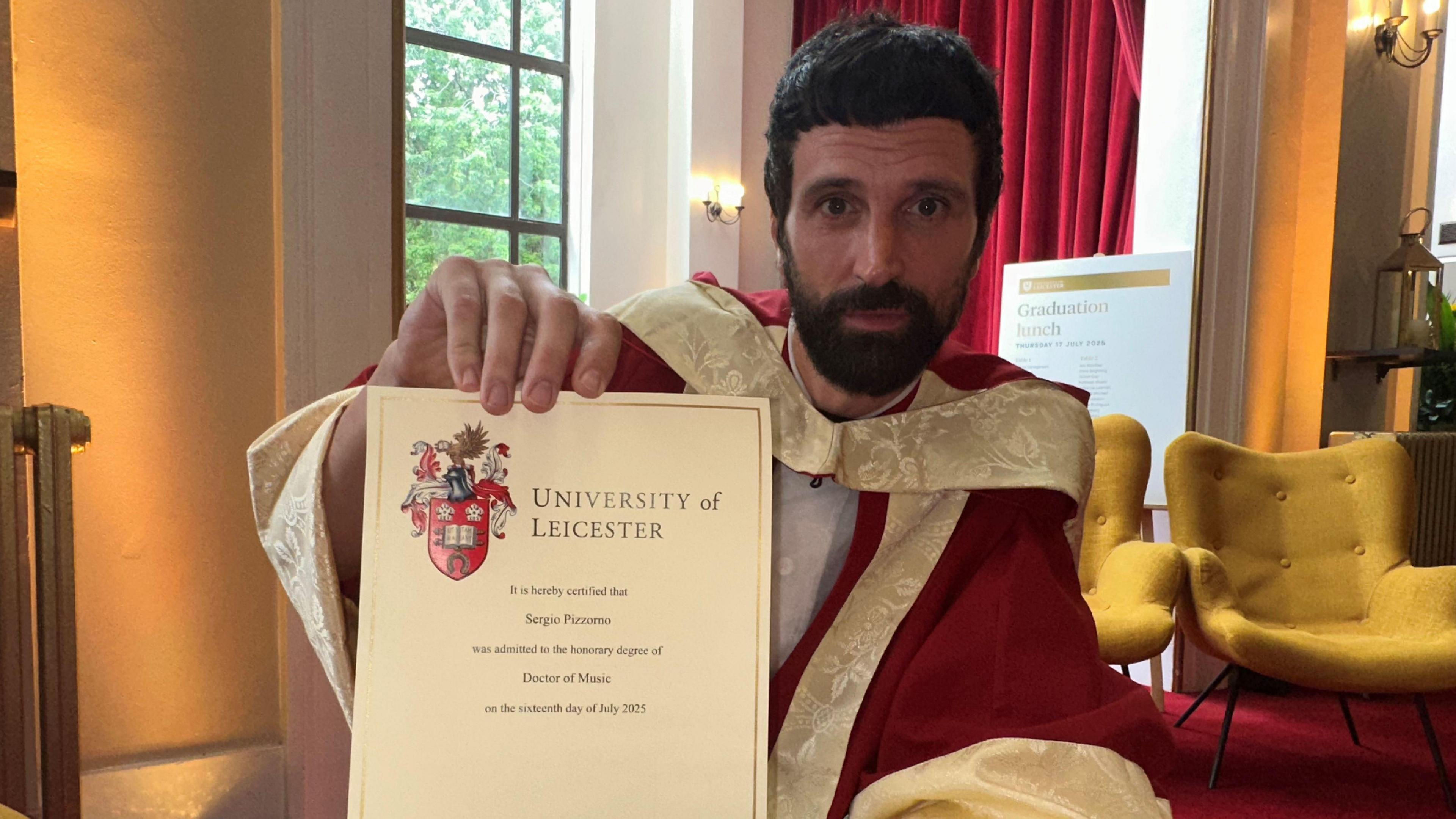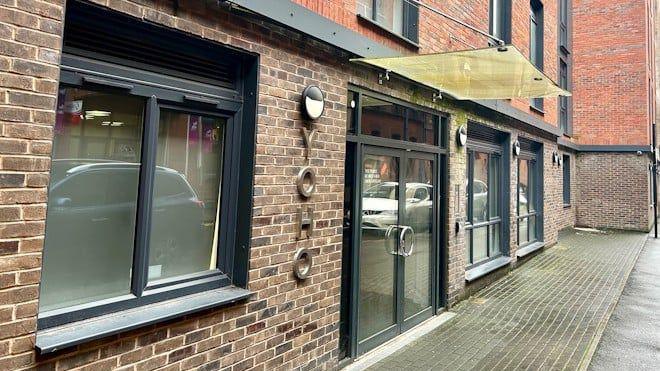GP honoured for 35 years of helping the homeless

Dr Nigel Hewett has been recognised for his work for those living on the streets
- Published
A GP from Leicester who has worked to improve the health of homeless people since 1990 has been given an honorary doctorate.
Dr Nigel Hewett accepted an honorary Doctorate of Science award from the University of Leicester at a ceremony at De Montfort Hall on Thursday.
In 2000, he set up the Leicester Homeless Primary Healthcare Service - which became Inclusion Healthcare - to provide services for homeless and other marginalised people.
He was awarded an OBE in 2006 for services to homeless people and in 2009 he launched University College London Hospital's Pathway homelessness team.
A lifelong Leicester resident, Dr Hewett said he was "delighted and humbled" by the honour.
"Leicester has an outstanding primary health care service for people experiencing homelessness and asylum seekers," he said.
"We should be proud to be national leaders in this field and this humbling award is a recognition of multidisciplinary team work over the decades."
In 2010, he was a founder member of the Faculty for Homeless and Inclusion Health and became medical director of Pathway – a charity formed to support the faculty and improve the healthcare of homeless people and other excluded groups.
Dr Hewett told the BBC: "I've always felt drawn to people on the margins of society and people who have had the most to gain from health care.
"There's a thing called the inverse care law which suggests that the more you need medical care the harder it is to get it and homeless people are at the extreme end of that spectrum of deprivation."
Homeless 'feel invisible'
Dr Hewett said he saw one of his former patients while visiting the University of Sheffield.
The patient had problems with heroin, but with the help of methadone went on a long-term detox and is now signing on for a PhD after completing a degree in criminology.
"There's always a way back," Dr Hewett said.
"You have to hang on to the wins in this work, because for most people they have age of death in the early 40s and it's often a very sad story."
He added that homeless people often "talk of feeling invisible" and said "the rest of us can help, I think, by just making eye contact and saying hello".
Get in touch
Tell us which stories we should cover in Leicester
Follow BBC Leicester on Facebook, external, on X, external, or on Instagram, external. Send your story ideas to eastmidsnews@bbc.co.uk, external or via WhatsApp, external on 0808 100 2210.
Related topics
- Published16 July

- Published31 May

- Published24 February
